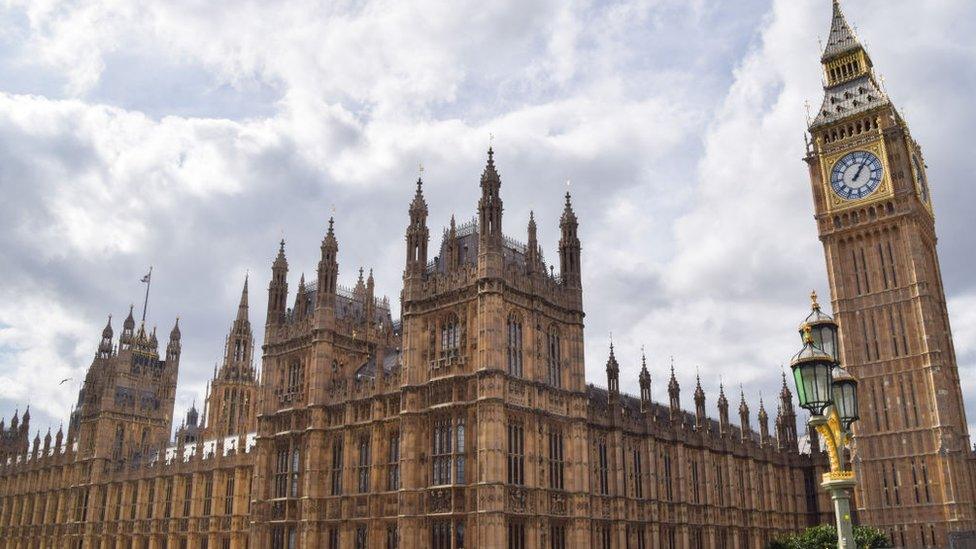UK elections 2022: What are people voting for on Thursday 5 May?
- Published
- comments
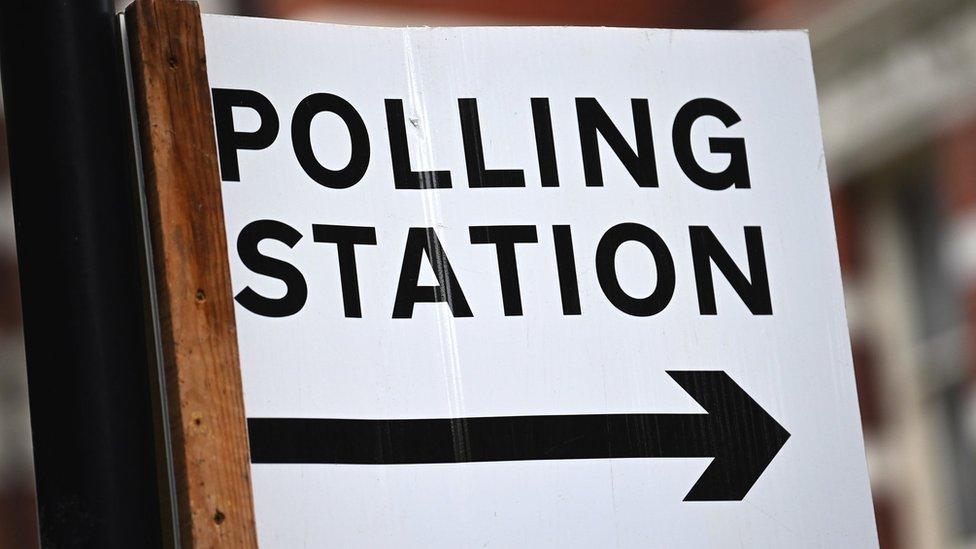
Adults in England, Northern Ireland, Wales and Scotland will be voting on 5 May
There are several different types of elections taking place across the UK on Thursday 5 May.
Adult voters in England, Wales and Scotland will pick who they want to run services that affect everyday life in their local area.
People in Northern Ireland will choose its government.
Here's everything you need to know.
ENGLAND - Local councils
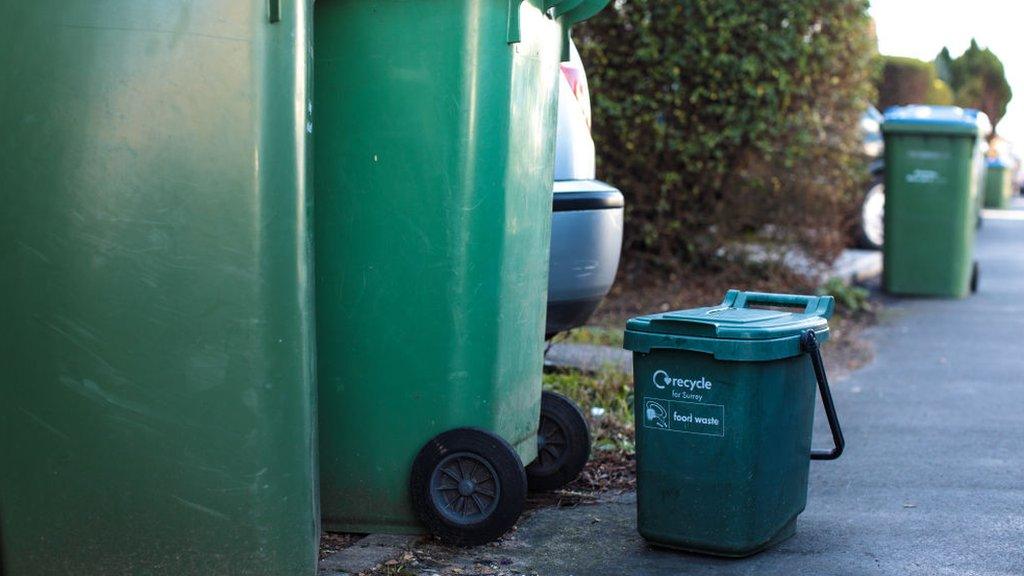
Bin collection and recycling services are run by local councils
Local councils are responsible for everything from bins, bus routes and road potholes, to providing mental health services and managing schemes to tackle climate change.
In England, more than 4,000 councillors in 146 councils are up for election in major cities including Leeds, Manchester, Birmingham and all 32 London boroughs.
South Yorkshire will also be voting for a regional mayor and 1,000 parish councils will be electing about 10,000 councillors.
Local elections offer voters the chance to have their say on what's going on in their area - and to give their opinion on the performance of the political parties.
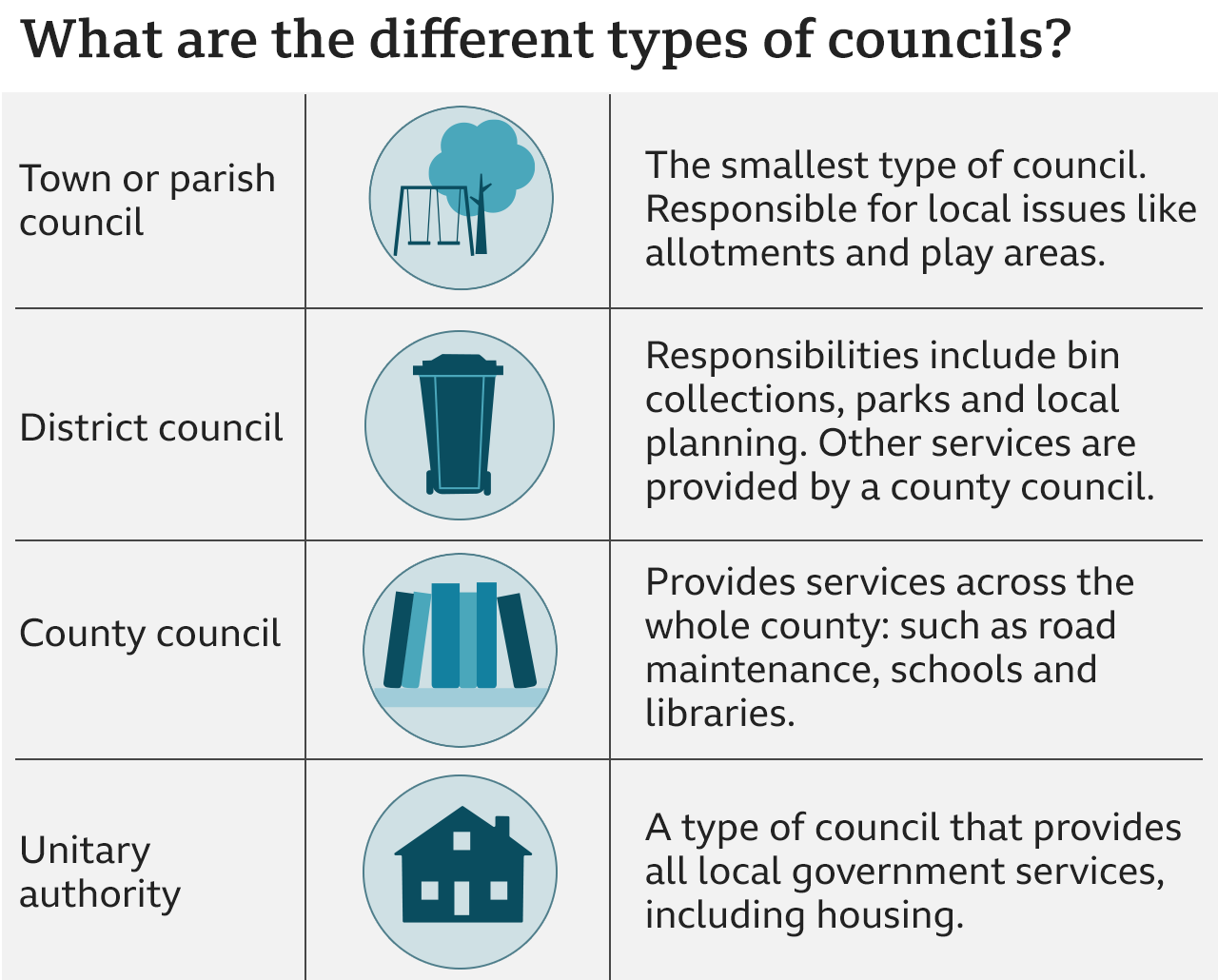
National and international issues like the rising cost of living and the war in Ukraine might be on voters' minds.
At the same time as local matters like the state of roads and how well bins are collected.
NORTHERN IRELAND - Assembly
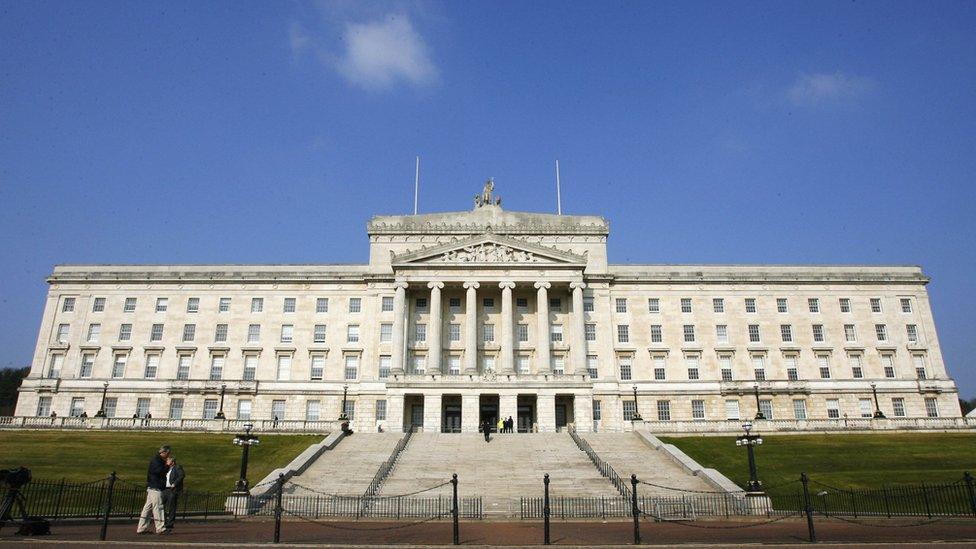
Stormont is the home of the Northern Ireland Assembly
The election for Northern Ireland's government is largely a contest between the parties in two groups - unionists, who want to remain part of the United Kingdom, and nationalists, who want Northern Ireland to unite with the Republic of Ireland.
Since 2003, the Democratic Unionist Party (DUP) has been the largest party in the national assembly, followed by nationalists Sinn Féin.
The two parties, along with other unionist and nationalist parties, and a third group of parties not belonging to either side, have led the country under a compulsory power-sharing agreement that ended years of fighting known as the Troubles.
Ninety members of the legislative assembly (MLAs) need to be elected in the vote.
Recent polls suggest Sinn Féin could win the most seats for the first time.
If Sinn Féin becomes the largest party, the DUP has not said whether it would agree to share power.
That means it's possible that even after the election, the Assembly could remain without a devolved government for at least six months.
• 146 English councils, that's about 4,360 seats
• 90 seats in Northern Ireland Assembly
• 22 councils in Wales, with a total of 1,234 seats
• 32 Scottish councils with 1,227 councillors to be elected
• 7 directly-elected mayors in England
WALES - Local councils
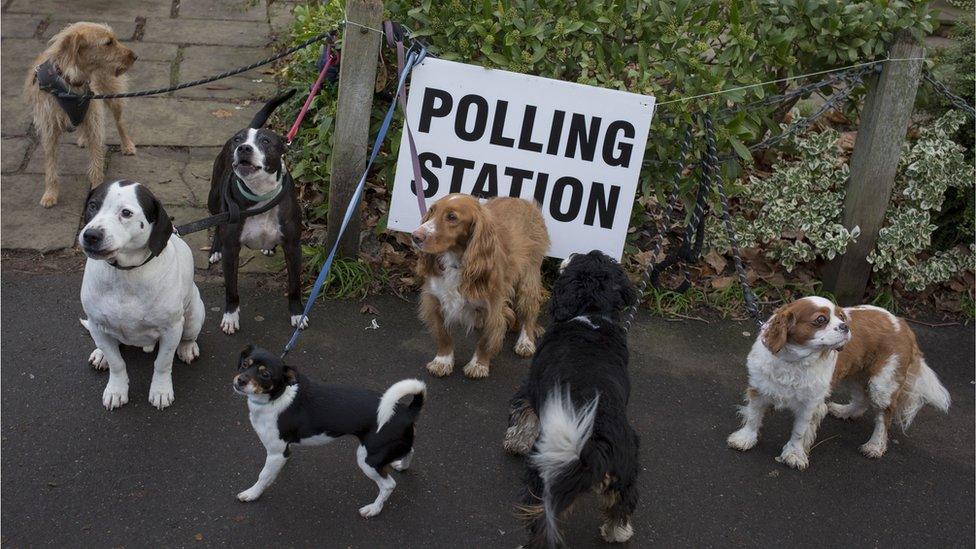
Whenever adults go to the polls to vote in elections - whether local or general - many people often take their dogs and snap funny photos like this one!
Welsh voters will be going to the polls on 5 May to choose their local councillors.
There are 22 councils in Wales, with a total of 1,234 seats up for grabs.
These local councils and councillors can make decisions on how local services - such as transport, schools, social services and waste - are run.
People in Wales can vote from the age of 16.
SCOTLAND - Local councils
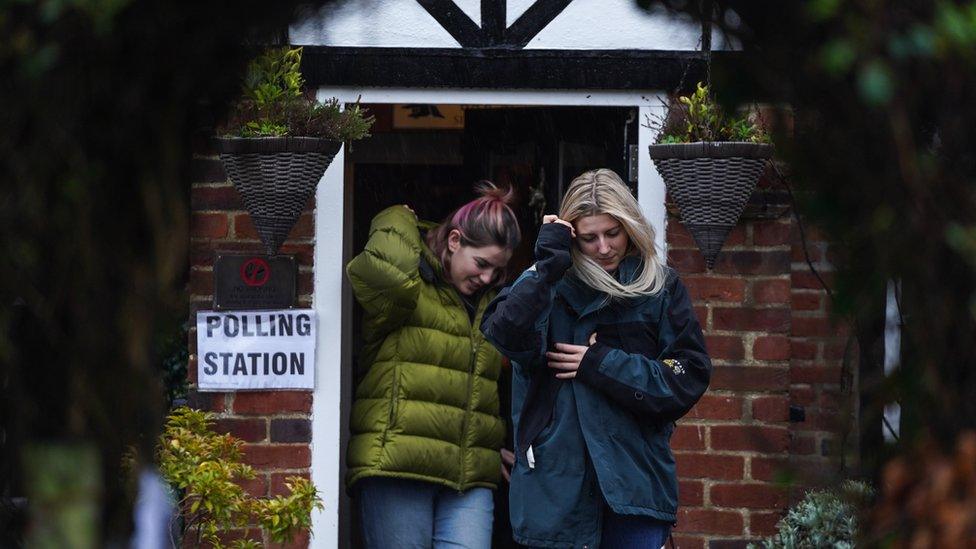
Elections for all 32 Scottish councils will be held on 5 May, with a total of 1,227 councillors to be elected across the country.
Voting is open to anyone over the age of 16 in Scotland.
The last council elections were held in 2017, with the Scottish National Party remaining as the largest party across the country.
The Conservatives also took a lot of seats from rivals Labour across much of the country.
The results meant that no single political party had a majority of seats in any mainland council - so they would all either be run by a coalition or a minority administration.
A coalition is an agreement between at least two parties to share power.
When will we know the results?
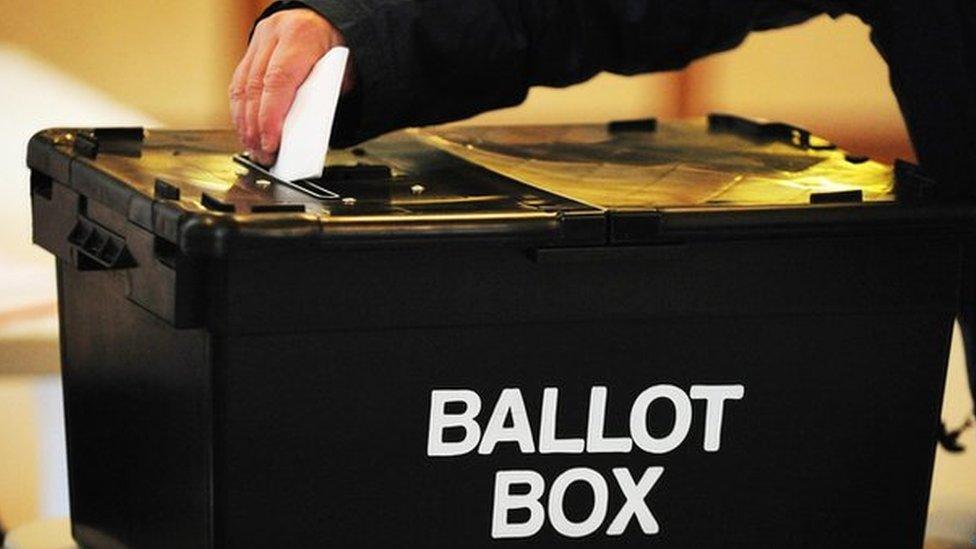
A voter puts their ballot paper into a ballot box
The results for the English local elections are expected throughout the day on Friday 6 May, with some councils also likely to declare their results on Saturday.
The counts in Scotland and Wales will not begin until Friday, with results not expected until that afternoon at the earliest.
Meanwhile, in Northern Ireland, counting starts at 9am on Friday and the first results could be declared from lunchtime.
The final results could be known by the end of that day, but it's possible counting will pause overnight and start again on Saturday morning, with final results likely by Saturday afternoon.
Once the new assembly is elected it must meet within eight days and will be asked to nominate a first and deputy first minster, which is part of the power-sharing agreement.
- Published24 May 2024
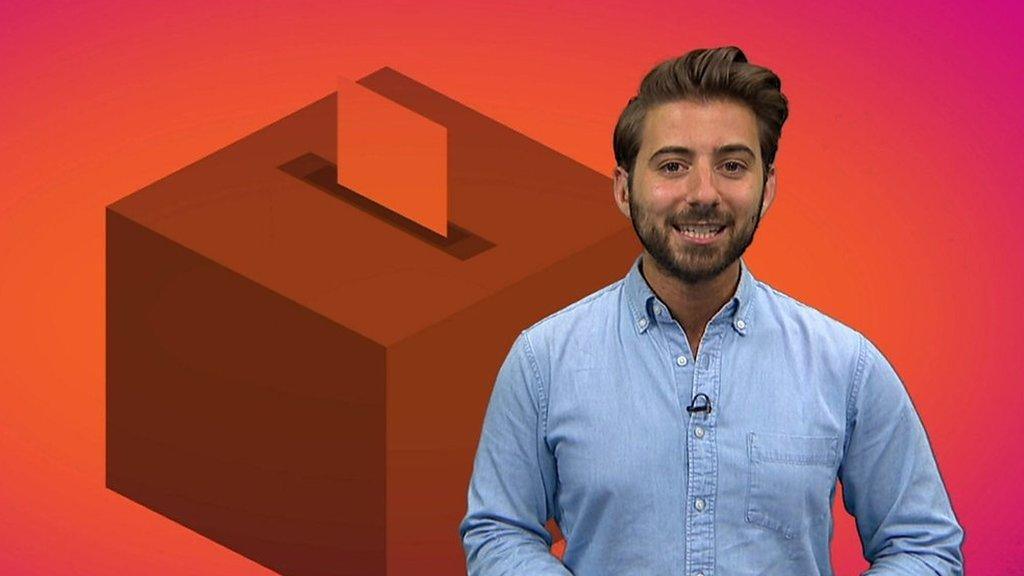
- Published24 May 2024
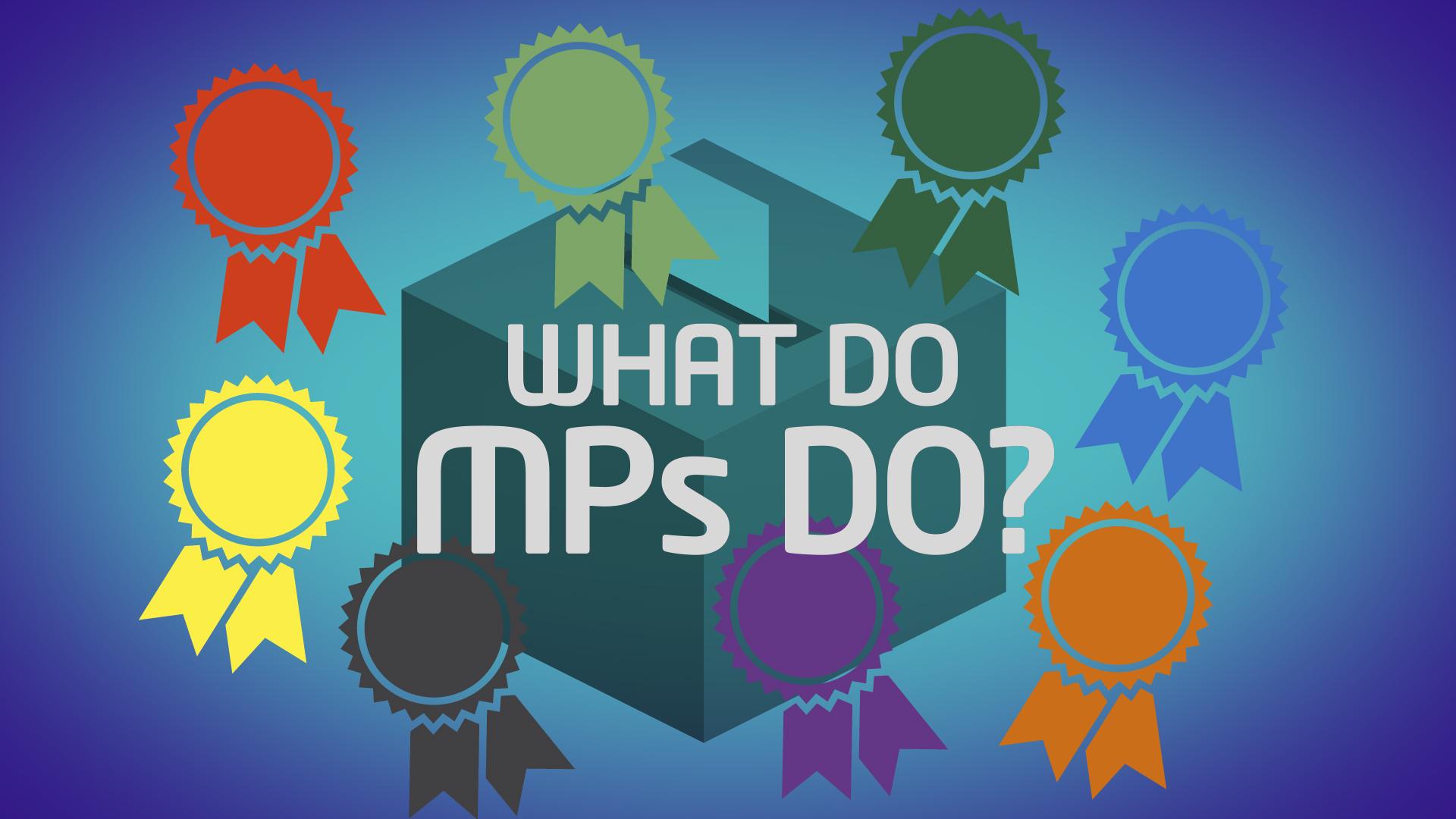
- Published27 October 2023
